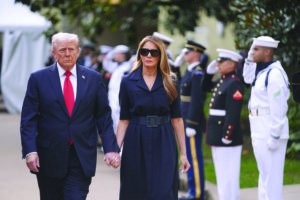Orthodox nun removed after criticising Russia’s war
NEW YORK, Sep 11: Sister Vassa Larin, a U.S.-born Orthodox nun known for her YouTube channel Coffee with Sister Vassa, was removed from her monastic status by the Russian Orthodox Church Outside of Russia (ROCOR) after publicly opposing Russia’s invasion of Ukraine.
A respected theologian and one of the few prominent female intellectuals in Eastern Orthodoxy, Larin says her dismissal was retaliation for speaking out against Moscow Patriarch Kirill, who has supported the war and holds authority over ROCOR.
Though the official reason given was “disobedience,” Larin believes her vocal criticism of Kirill’s alignment with Russia’s political agenda prompted the decision. She refused orders to stop her media work and join a convent, which would have silenced her. In May, the Synod of Bishops confirmed her removal.
Larin has since joined the Kyiv-based Orthodox Church of Ukraine and now serves as a visiting professor at its theological academy.
Her new bishop praised her commitment to peace and opposition to Russian war propaganda. Larin claims her ouster is the first known case of Moscow’s church hierarchy punishing a US Orthodox figure over anti-war views.
ROCOR, once a haven for Russian émigrés fleeing Communism, reconciled with the Moscow Patriarchate in 2007. Since then, it has echoed pro-Moscow positions while avoiding explicit condemnation of the war. Scholars note that the Russian Church is increasing pressure on Western Orthodox jurisdictions.
Larin, who grew up in a Russian Orthodox household in New York and earned a doctorate in theology in Germany, had long used her platform to educate the public on Orthodoxy.
Her earlier content included light-hearted teachings but took a more serious tone after the war began. She criticized church leaders for supporting or remaining silent about the invasion.
Despite her removal, Larin continues her ministry and public commentary. She says the church’s actions won’t stop her from speaking the truth: “They do not have the power to redefine good and evil.”
Her case has become symbolic of the growing divide within global Orthodoxy over the war and the Russian Church’s political entanglements. (AP)




